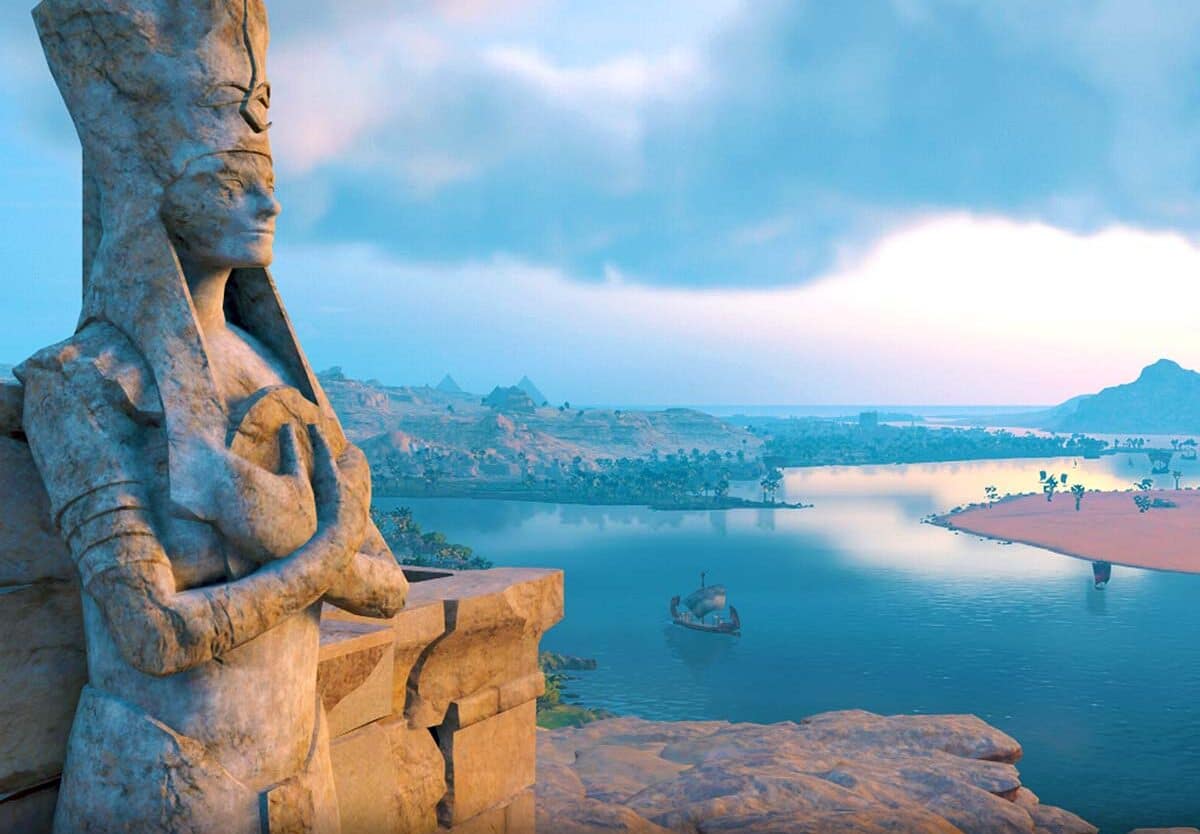The Flooding of The Nile is a holiday observed on August 15 every year. Egyptians celebrate for two weeks starting on August 15. This period of cultural celebrations is known as Wafaa-El-Nil. This holiday and period recognize the importance of the Nile River in Egypt’s culture, economy, and social activities. The people acknowledge how their rich history, culture, and economic prosperity have stemmed from the flooding of the river. The English translation of Wafaa-El-Nil is ‘Fidelity of the Nile’, a phrase that touches on how Egyptians see the annual event as a constant that one’s faith can depend upon.
History of Flooding of the Nile
The Nile is amongst the smallest of the world’s rivers, measured by the water flowing through it yearly. About 6,650 km long, it goes through eleven African countries: Tanzania, Uganda, Rwanda, Burundi, the D.R.C, Kenya, Ethiopia, Eritrea, South Sudan, Republic of Sudan, and Egypt. The Nile is the main water source of Egypt, Sudan, and South Sudan. It supports agriculture and fishing.
The Flooding of The Nile has been celebrated in Egypt for thousands of years. It’s an event that’s taken place even longer. Before Egypt was even an idea, The Nile was bursting its banks regardless of whether anyone was around to witness the awe-inspiring natural event or not. When Egypt came into being, the citizens ascribed the sudden rise of the river to their gods. They believed that The Nile flooded every year because Isis cried for her husband, Osiris after he’d been slain by Set. The river flooded because of the tears she shed as she tried to knit her husband’s body back together.
The actual reason the flooding was so cherished was that the flooded river would leave behind black silt when the water levels returned to normal. This black silt was rich in minerals and vitamins that allowed crops planted in it to flourish. The river flooding was what allowed the Egyptians to grow successful crops in the desert. This floodplain constitutes only 3% of Egypt’s land and is very fertile. It was a general rule that the prosperity of the year was dependent on how much silt the floods left behind. If the floods did not cause the levels to rise that much then there would be famine in that year because what the people could plant was determined by how high the river had risen. Grain is stored in prosperous years in case of drought.
Flooding of the Nile timeline
James Bruce travels the Nile to its source in Ethiopia.
The Suez Canal is built, laying the foundation for what will become a global trading route.
Egypt declares its independence.
Construction begins on the Grand Ethiopian Renaissance Dam, which will be the largest hydroelectric plant in Africa when completed.
Flooding of the Nile FAQs
Is the Flooding of The Nile a holiday?
Yes, in Egypt the Flooding of The Nile is a national holiday and people get the day off work for it.
How long does the Nile River rise and sink?
The Nile flooded and rose for a period of two to three weeks and would reach its highest point in October and its lowest point in June.
Why is the Nile called the Martyr’s Finger?
The Coptic church celebrated the Flooding of the Nile by throwing a martyr’s relic into the river. That led to the strange name.
How to Observe Flooding of the Nile
Celebrate with tradition
Ancient Egyptians celebrated the flooding of The Nile by taking it to the river in colorfully decorated boats. People sail, sing and praise their gods for the gifts of the river. In modern times, people still celebrate like this, but it’s more of a tribute to the past and the culture. Document and share what you see, on social media.
Sail The Nile
Celebrate by sailing The Nile and admiring the natural wonder that ancient Egyptians depended upon. You can rent a boat, ride the ferry or take part in one of the many celebrations already going on. Virtual tours are available.
Honor the past
Take the time to remember what the day meant to people who depended on the river and its contribution to the economy and history of the country. You could take a moment to reflect on what natural wonders did the same in your region.
5 Facts About Egypt That Will Surprise You
Cleopatra wasn’t Egyptian
One of the most famous figures of Egyptian history, Cleopatra, was actually Greek.
Full of heritage
Egypt is home to seven UNESCO-designated World Heritage sites.
The first prosthetic
Egypt is the producer of the oldest-known prosthetic, a toe made of leather, wood, and thread from around 950 B.C.
The calendar creators
The 365-day calendar, divided into 12 months and currently used, originated in Egypt.
Government surveillance
Social media accounts with more than 5,000 followers must adhere to media laws and are monitored by authorities.
Why Flooding of the Nile is Important
History matters
Celebrating events that honor the past that created your modern culture and community is so important. In doing so you have the chance to connect with your ancestors who did the same thing so many years ago. We think the Flooding of the Nile is a precious opportunity to cherish the past and build on it for the future.
Community event
Celebrating outdoors with family, friends, and neighbors is always a good thing. The Flooding of the Nile creates a day when people are encouraged to go out of their comfort zone and open up to their fellow citizens.
A teaching moment
Although the river no longer floods, the festivities continue and provide a great opportunity for you to teach your kids about their heritage. Instilling your children with pride and knowledge of their country is the start to making them into citizens that love their country and do what they need to improve it.
Flooding of the Nile dates
| Year | Date | Day |
|---|---|---|
| 2025 | August 15 | Friday |
| 2026 | August 15 | Saturday |
| 2027 | August 15 | Sunday |
| 2028 | August 15 | Tuesday |
| 2029 | August 15 | Wednesday |
























